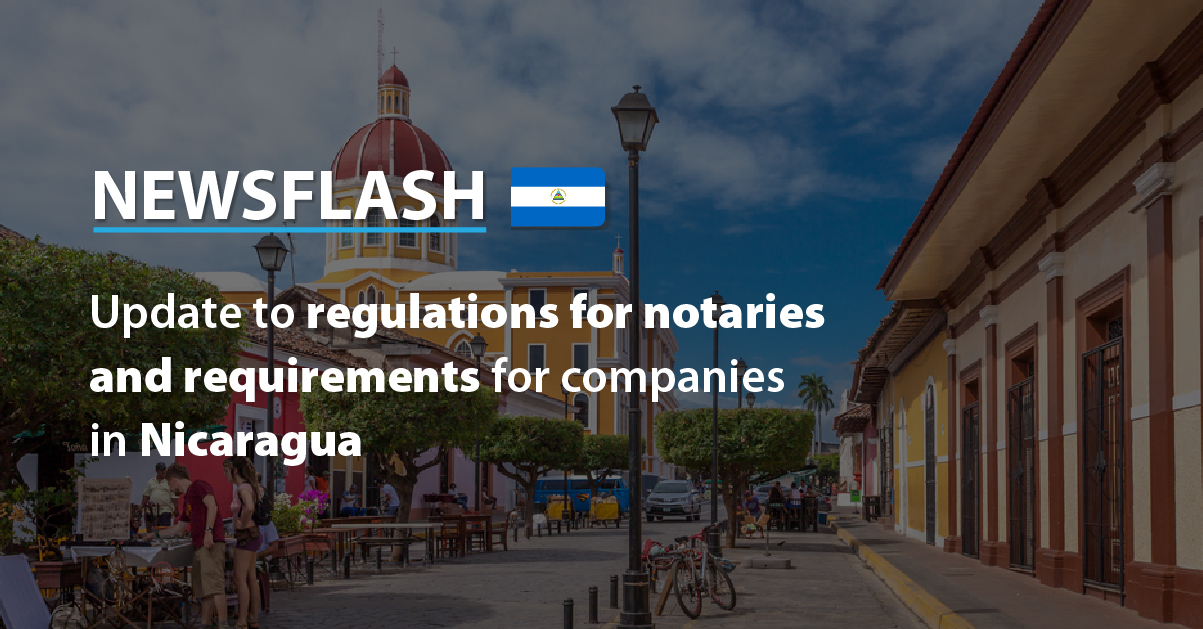On April 4, 2022, Law No. 1113 on Reforms to the Notary Law and the Commercial Code was published. This new statute modifies four articles of the Notary Law and one of the Commercial Code. The most relevant changes are in line with the obligations of notaries and companies to comply with the national regulations on the Prevention of Money Laundering and Final Beneficiary.
New notary obligations:
- Comply with the plans and measures imposed on these professionals in the prevention of money laundering;
- As an obligated subject, develop prevention work (identification of clients) when they carry out or authorize documents related to the activities designated by law (example: transfer of real estate, creation operation, administration or purchase and sale of legal persons, etc.);
- Identify the Final Beneficiary of the Legal Entities, completing the corresponding report;
- Require and attach to all the acts requested by a commercial company, a certified copy of the last certification of declaration of Final Beneficiary issued by the Registry.
Commercial Code reform:
The law modifies article 121 of the Commercial Code (amended in 2020 by the law that originates the registration of Final Beneficiary) and provides that all public sector institutions and municipalities must require commercial companies to submit the Certification of declaration or update of Final Beneficiary issued by the Registry to process any application for licenses, operating permits or when applying as a vendor to the State; the same applies to judges in civil and commercial matters when companies bring any action, demand or request.
In summary, as of April 4, commercial companies in Nicaragua must have their Final Beneficiary Declaration up to date to:
- Request any document before a notary public
- Apply for permits, licenses before any state institution and municipalities
- Be a supplier to the state
- File any action, demand, or request in civil and commercial matters.



